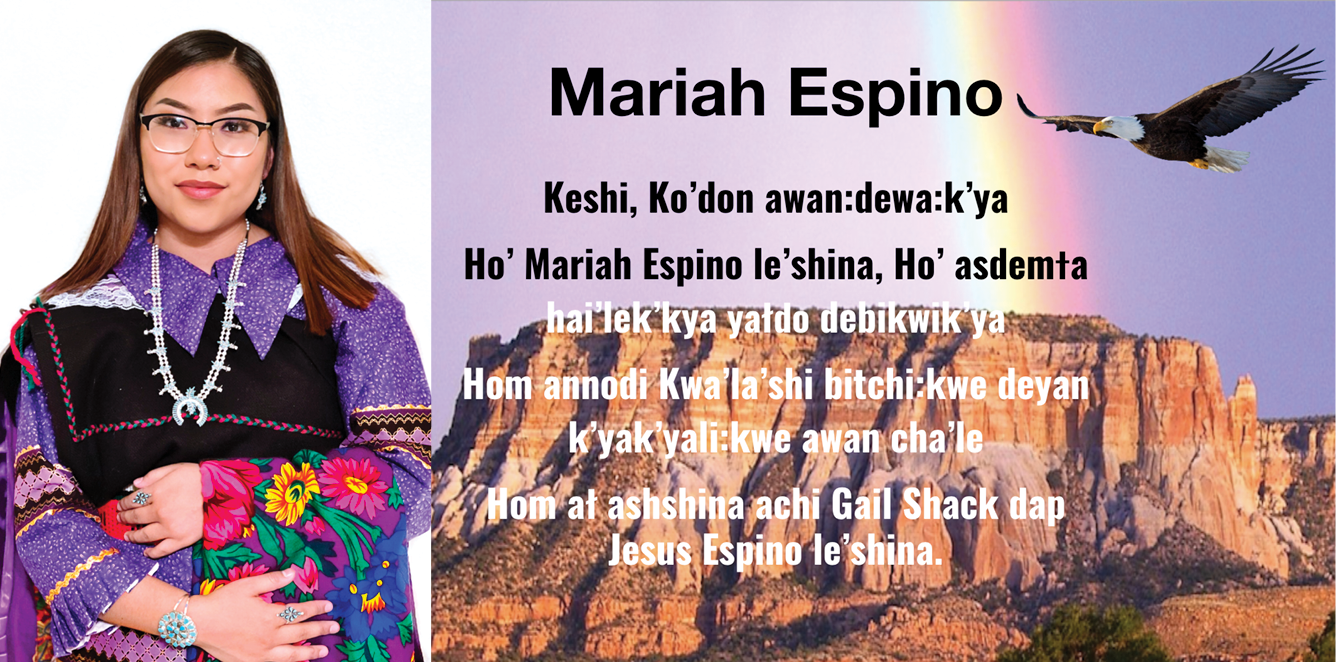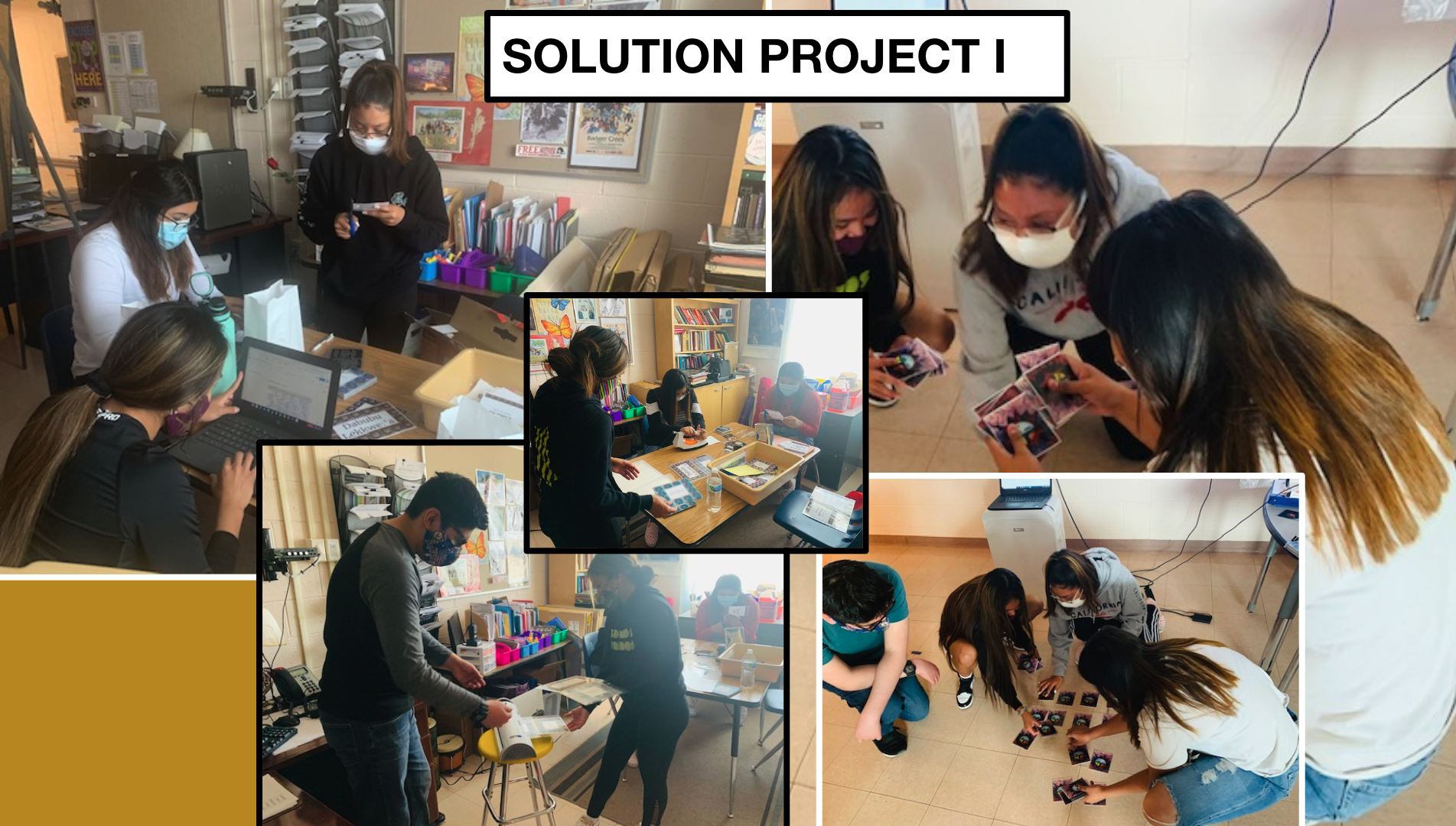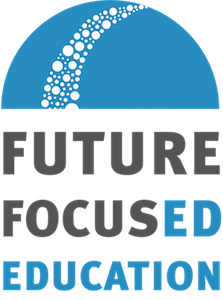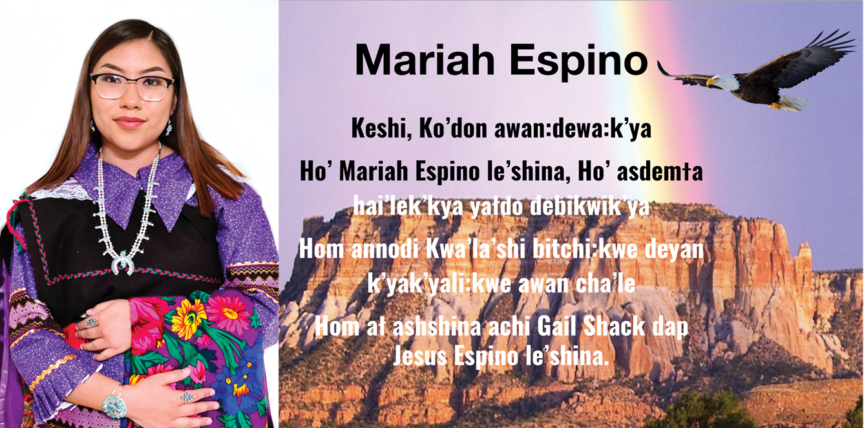Capstones: A Catalyst for Intergenerational Healing
Part 2

“Our silence has never served us.”
And as a Native educator, I see capstone projects as conduits to reclaiming intergenerational harmony and healing. I am so proud to say my Dual Credit Capstone Project has set the bar for capstone project excellence in the state of New Mexico.
So, how do capstones heal? Let me introduce Mariah Espino.
At the start of the fall semester 2020, Mariah selflessly took on the task of caring for seven family members infected with COVID. Her mother and father were 150 miles away in Albuquerque, giving birth to Mariah’s newest sibling, leaving her as the sole family care provider.
Mariah’s Mental Health
Throughout a pandemic year that no one could have imagined or prepared for, Mariah struggled to balance the demands of family with that of virtual learning, a learning modality which to her felt more contrived than real.
“I was changing as a person and assessing those changes. I was not on top of my school work like I normally was in face to face learning, and it was difficult to take virtual learning seriously,” Mariah told me. “It was so hard to find a balance between home and school obligations.”
During this time she recalls that her mental health hovered at an all-time low. These were times when she would reach out to me via text messaging to tell me that class work needed to be set on the backburner due to the burdens she was shouldering at home. My response was always, “Take care of you first, and in time the rest will take care of itself.”
When we returned to school in hybrid learning eight weeks before the end of the school year, Mariah reported that her stress levels had dropped significantly due to the fact that our capstone project requires the class to work as a collaborative team.
Unlike other capstones that center individual student projects, we craft our capstone experience after the A:shiwi tradition that places value on the collective as opposed to individual achievement. Mariah approached her part of the project enthusiastically. She said, “This is great! I’m not having to do this all by myself. It’s not going to all be on me.”
With just weeks remaining in the academic school year and the capstone presentation deadline looming, Mariah felt her stress levels dissipate even more because she could visibly see the project taking form.
“I was getting things done because everyone was contributing their own skills sets enabling the project to move quickly,” she said. “I loved the hands-on aspect of the project and working with my peers as opposed to being confined to a desk writing a research paper. It gave me such pride to see our project developing with the support and effort of who we were, a group of like-minded peers working together in the A:shiwi tradition.”
She said, “Having the liberty to devote my attention solely to the project in addition to peer support was freeing.”

Presentation Day
And then it was time to present. I had urged the students to arrive early that day since we were scheduled to present at 8am that morning. By the time I had arrived at school, capstone students milled about in nervous anticipation, some students helping others make last minute adjustments to their regalia, while others anxiously kept a watch on the school’s entrance for anticipated family members.
To help calm their nerves, I reminded them that they had worked hard to prepare, had devoted hours of rehearsal time doing their best to follow my instructions, “Your performance must be flawless,” and that I knew they were more than ready to pull this off.
Mariah recalls the immense feelings of pride because she was absolutely confident that her capstone team’s work was good. She looked forward to sharing her accomplishments with her family, and especially, her ability to speak Shiwi.
She was also proud that the capstone team had chosen her to be one of the cultural role models identified in one of their three project solutions, a collection of ten portrait posters featuring Zuni community members of all ages and professional backgrounds. This set of posters now hang in our Zuni High School hallway.
She says that at this point her mental health was bolstered with the confidence that her team had achieved what had seemed close to impossible.
How Capstones Heal
The value of capstone projects like Mariah’s is clear. Instead of a high-stakes, one-time standards-based assessment, she was participating fully over the course of the school year. This project prepared her as a whole person to move on to the next step in her life goals.
“Culture was so important. It opened my mind to think about a lot of things because our project was culture based,” she said.
Mariah is now a full-time UNM student in a BA/MD degree program, balancing a rigorous course load. She told me that she remembers in those early college days that she found herself starting to develop imposter syndrome.
She recounted that non-Native student peers would often boast about their GPA or the fact that they had been valedictorian. This triggered her to try to be more like them in an effort to be “good enough.” But then her thoughts flew back to the capstone project.
“I had started to feel like I was letting go of my culture, which subsequently brought on some depression,” Mariah said. “The terminology I was learning in my mental health class helped me to reflect on the cultural meaning of ‘coming home.’ And then I realized I can always revisit our capstone for personal and cultural affirmation.”
When people ask me, a Native teacher, a boarding school survivor, and a capstone assessment leader, how capstones are healing, I tell them Mariah’s story. I tell them how her capstone became a touchstone to keep her family and culture close, even when she was far from home at university. Her words stay with me. This quote especially:
“This experience grounded me in myself, my confidence, my culture and most of all, my Zuni core values.”



Comments
What an amazing testimony! Great research in action! Thank you for sharing your powerful story.